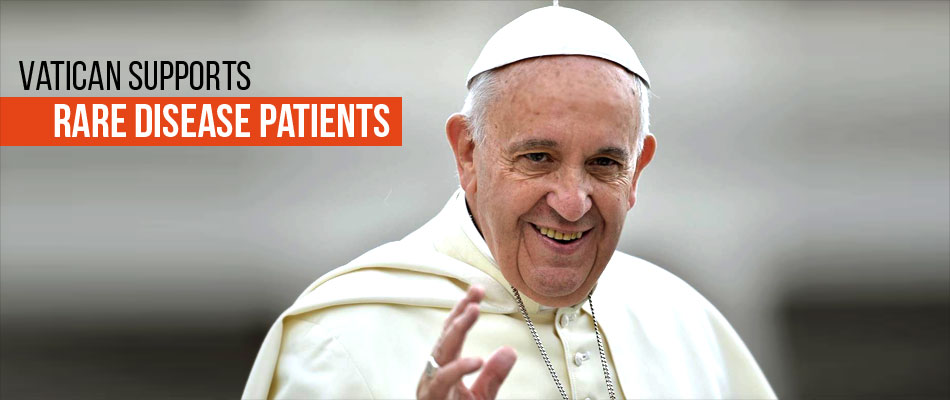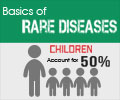
- Rare or orphan disease is any disease that affects a small percentage of population
- Pope Francis in a conference hosted by Vatican spoke out of empathy for patients with rare diseases
- Globally around 350 million people are estimated to live with a rare disease
Much of the conference was devoted to rare diseases and the prospects of using adult stem cells for curative. The meeting saw a diverse audience as scientists, medical researchers, doctors, patients, religious leaders and government officials gathered to share their views. US Vice-president, Joe Biden was present as a VIP guest at the conference. Joe’s son Beau succumbed to brain cancer in 2015 and Joe was at the conference as part of his campaign tour to promote cures for cancers.
Rare Diseases Facts and Figures
- Currently there are 7000 rare diseases with newer ones being discovered each year.
- 80% of all rare diseases are genetic and usually present at birth or a little while after birth
- Rare diseases may be single-gene disorders like thalassemia and sickle cell anemia or multiple-gene disorders like hereditary multiple osteochondromas
- Almost 50% of those affected are children and 30% of these children will not live beyond the age of 5
- It takes nearly 7 years to diagnose a rare disease
- 95% of rare diseases do not have a cure
The conference and the Pope’s forward looking statements and suggestions have generated hope among patients and families with rare diseases. The conference was a rare confluence of religion and science meeting to solve the world’s critical problems especially disease and suffering.
- Pope calls for "empathy" in treating people with rare diseases - (http://www.alpha1.org/Healthcare-Providers/Education/News/ArtMID/7019/ArticleID/6937/Pope-calls-for-empathy-in-treating-people-with-rare-diseases)
- Pope Francis on rare diseases: patients should not feel abandoned - (http://www.pagadiandiocese.org/2016/04/29/pope-francis-on-rare-diseases-patients-should-not-feel-abandoned/)
- About GARD - (https://rarediseases.info.nih.gov/)








